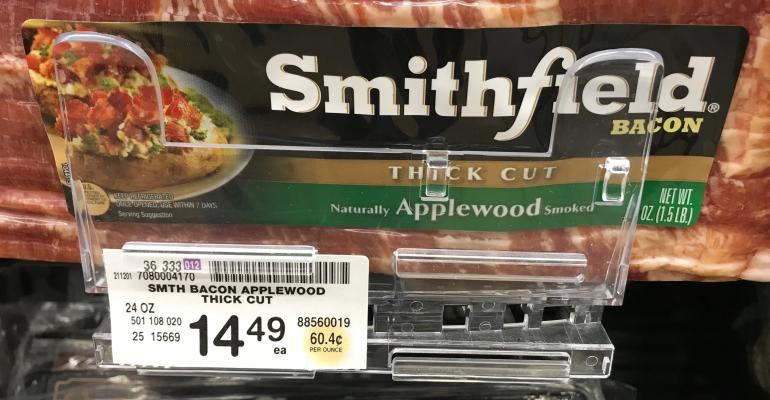The Superior Court docket for Sacramento County in California will halt enforcement of Proposition 12 as a result of the California Division of Meals and Agriculture is greater than two years late finalizing laws outlining what is predicted of pork producers. The ruling delays enforcement till 180 days after the ultimate guidelines go into impact.
In 2008, the voters authorized Proposition 2, the Prevention of Farm Animal Cruelty Act, which took impact Jan. 1, 2015. With exceptions, Prop 2 banned three types of animal confinement: “gestation crates for pregnant pigs, veal crates for calves, and battery cages for egg-laying hens.” Prop 2 didn’t prohibit gross sales of meals derived from animals wrongly confined. In November 2018, the voters constructed upon Prop 2 by approving Proposition 12, the Prevention of Cruelty to Farm Animals Act. The Act’s said goal is to “forestall animal cruelty by phasing out excessive strategies of farm animal confinement, which additionally threaten the well being and security of California shoppers, and improve the chance of meals borne sickness and related unfavourable fiscal impacts on the State of California.”
The up to date constitutional modification seeks to not solely require pork raised within the state to not be raised utilizing sow gestation crates, but in addition to any pork consumed within the state to fulfill the identical requirements. After Dec. 31, 2021, confining a breeding pig with lower than 24 sq. ft of usable floorspace per pig was thought of “confined in a merciless method.”
The courtroom ruling notes that petitioners have requested for a delay in enforcement till 28 months after CDFA and California Division of Public Well being promulgate ultimate laws.
“Within the courtroom’s view, the Jan. 1, 2022 date was calculated not less than partially to permit producers to assemble new enclosures after the act took impact. Consequently, though the courtroom agrees that petitioners are entitled to a delay that extends previous the date on which laws are enacted, it disagrees that 28 months are required,” the decide writes.
The courtroom’s writ will stay in impact till 180 days after ultimate laws go into impact. After ultimate laws are enacted, the events could return to this courtroom for any acceptable adjustment to the date.
The North American Meat Institute and its members are against Prop 12 and urged the State of California to delay its implementation of the legislation as a result of threat of felony sanctions and civil litigation for non-compliance.
“Choose Arguelles’ resolution acknowledges the complexity of the pork provide chain and the burdensome and expensive provisions of Prop 12,” says Julie Anna Potts, president and CEO of the North American Meat Institute. “To implement the legislation with out ultimate laws leaves the trade uncertain of how one can comply or what vital modifications should be made to offer pork to this essential market.”
American Farm Bureau Federation President Zippy Duvall says AFBF is happy the Sacramento County Superior Court docket acknowledged that the state of California has rushed implementation of Proposition 12 with out clear guidelines on how it will likely be enforced. “California voters have been advised the legislation would enhance animal welfare and meals security, nevertheless it fails to perform both of these objectives,” Duvall says.
He provides the ruling is one other instance of inherent flaws in Proposition 12. “Moreover placing unfair stress on retailers, it takes away farmers’ flexibility to make sure hogs are raised in a protected setting. Small farms throughout the nation will likely be compelled to make costly and pointless modifications to their operations, which can result in extra consolidation and better meals costs for all of America’s households,” Duvall says. “It’s crucial that the Supreme Court docket handle the constitutionality of Proposition 12. The legal guidelines of 1 state shouldn’t set the principles for a whole nation.”
Nationwide Pork Producer Council Basic Counsel Michael Formica, says, “NPPC applauds the California Superior Court docket resolution recognizing the necessity for extra time to adjust to the rule’s onerous, unconstitutional laws, in order that the availability chain can proceed to provide pork to California. Yesterday’s resolution, nevertheless, is just a brief reprieve. America’s farmers are nonetheless awaiting to listen to if Supreme Court docket will hear their problem to Proposition 12, and its clear violation of the dormant commerce clause. If allowed to be totally applied, Proposition 12 will trigger catastrophic monetary hurt to America’s household farmers, driving many out of enterprise and undermining the general world competitiveness of the U.S. pork trade. “
The U.S. Supreme Court docket has for weeks thought to launch its resolution on whether or not to take the NPPC-American Farm Bureau Federation case difficult California’s Proposition 12, which bans the sale in California of pork from hogs born to sows raised anyplace in housing that doesn’t meet the state’s requirements.
The NPPC-AFBF case, which argues that Prop. 12 violates the Structure’s Commerce Clause, limiting states’ capacity to control commerce exterior their borders, was relisted from the SCOTUS convention on Jan. 14 and once more on Jan. 21.
An announcement from the excessive courtroom on whether or not it’s going to settle for or reject listening to the case is predicted quickly, NPPC mentioned.

This text initially appeared on Feedstuffs, a Grocery store Information sister web site.


